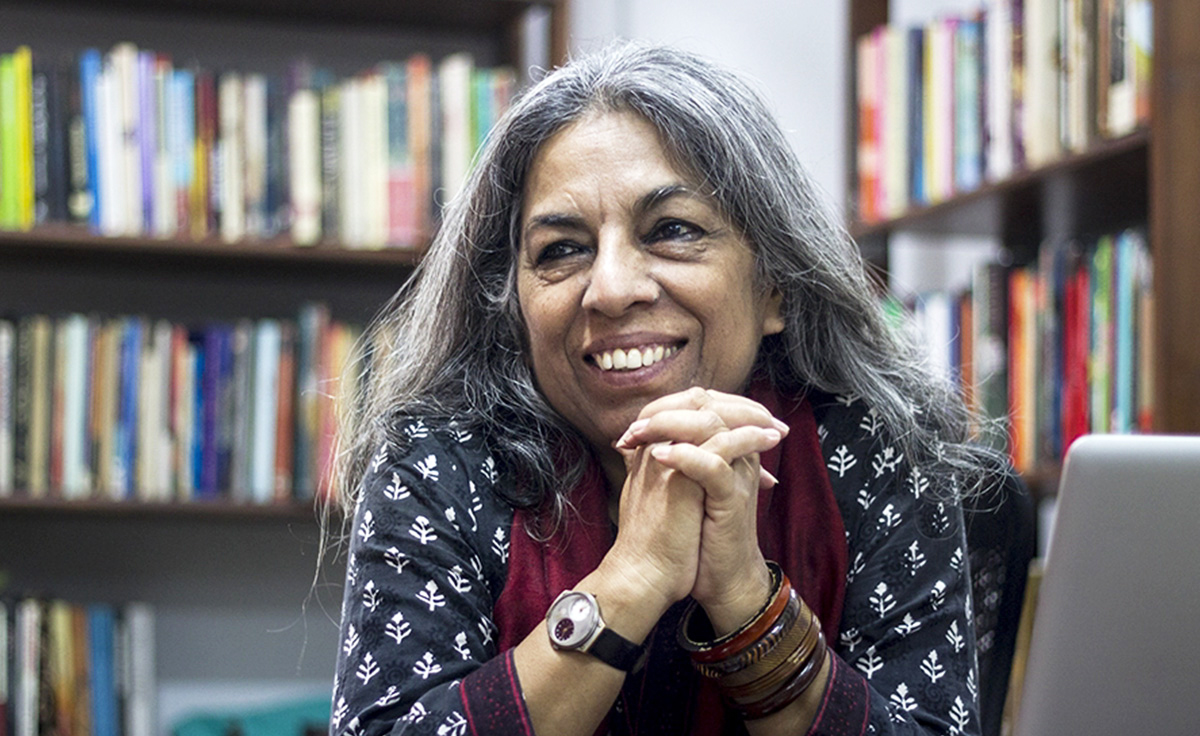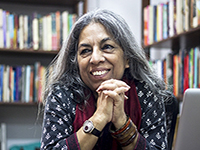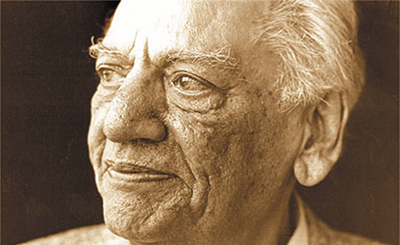
Urvashi Butalia, director of Zubaan Books. Photo courtesy: Zubaan Books
It’s a cliché to say that 2021 was a bad year for publishing, but like all clichés, there’s more than a grain of truth in this one too. 2020 began badly enough with the spread of Covid-19, followed by the sudden and harsh lockdown and the growing devastation and despair all round. As hundreds of thousands of poor workers trudged hopelessly to their villages as the cities they had built turned hostile to them, we asked ourselves some hard questions — as politically engaged publishers, should we be producing and selling books at such a time?
Even as we grappled with this question, circumstances made it impossible for us to continue: shops were shut, our printers — located across state borders that were now closed — were unable to deliver stocks to us, courier services were not functioning. The entire year was spent in a sort of a limbo, marking time, waiting for things to get better. Purnima, our publicity and marketing colleague, says: “When the pandemic began, we were a bit lost when it came to book publicity. Unable to market our current list or promote (or even print) new books, it felt like we were losing touch with our readers for a while, which was especially concerning for us as a small independent publishing house. With publishing processes either slowed down or halted, sales slowed down, as did book reviews, and we lost touch with some of the people from the book community who have provided us with solid support over the years.”
Our books, and discussions around them, are how we communicate with our readers. Without these, how would we survive? A series of discussions led us to the conclusion that even though the physical book could not be produced, it was important that we work hard to keep feminist conversations alive, to record what the pandemic and lockdown were doing to women. After several collective huddles, we arrived at a workplan. We would work to digitize our list fully, using the money saved on printing to turn our very valuable but pre-pdf days backlist into ebooks. We planned, and created pdfs, digitized them, proofread them and in August of 2020, we opened our ebookstore, reaching out to our readers with a variety of books. And their amazing, exhilarating response helped us to feel connected again.
Alongside we turned ourselves into enthusiastic Zoom practitioners. We organized all kinds of meetings and discussions, many on the impact of Covid. Along with our sister organization, the NGO Zubaan, these conversations opened up into virtual photo exhibitions, writing workshops, and so much more. And we prepared for the moment when things would (hopefully) become normal and we could start printing again: we edited, typset, proofread, prepared final print files, got covers ready, planning that, when things opened up, we could quickly put pending titles into production.
Early 2021 brought hope that this could be possible. We managed to do ten books in less than three months. And then, disaster struck again. As Tanvi Joshi, our assistant editor, describes it: “2021 began with all of us feeling cautiously hopeful for the first time since the pandemic began. The team was working hard to restart the publishing processes. Plans were being made to print books again, a publicity campaign leading up to their release had started in full swing, and the office had opened in a part-time, flexible capacity. It all came to a grinding halt with the devastating second wave. So many of us fell ill ourselves or had to care for those who did. Faced with the effects of this nationwide crisis, many of us felt helpless.”
Nithya, our production head, adds: “By 2021, it began to seem that Covid had somehow moved away, and as publishers we began, cautiously, to start afresh. We breathed a collective, cautious and hopeful sigh of relief, with presses warming up and stocking in our first printed book in over ten months. Having done the rounds of digitizing our older lists, we now began printing new titles, the ones that had been waiting. And just when a few advance copies of a couple of titles arrived, alongside came the deadly second wave.’ And then here is Purnima: “The beginning of 2021 brought some relief — we re-established contact with readers through feedback mechanisms, rebuilt our networks, strategized social media content differently than we used to. While all of this did help, we had to again stop abruptly when the second wave hit and we were right back where we started.”
Indeed, we were in a worse position than the previous year. For in 2021, we had spent precious money on printing, and there was no hope that the books would sell. We watched in alarm as our bank balance rapidly depleted. Money wasn’t the only thing to worry about: one of our senior colleagues contracted Covid and had to be in hospital for nearly two months — at a time when there was an oxygen crisis in the city. Two others became infected, their families too were in the same boat, and for everyone, recovery has been difficult. One of our authors died because her oxygen levels fell and she could not get into a hospital until it was too late. Another author lost her young son.Hope was hard to come by.
As Nithya said, “While stories are meant to bring us context, here we were, watching numbers on screens as all stories became irrelevant, outdated. Presses ran cold again, and no new books or covers were commissioned. All the authors were informed that their books were on indefinite pause. All physical sales were stopped, and so was the flow of resources and funds.”
The cautious hope that we’d begun with, evaporated into thin air. And yet, things were not totally dire. They never are. We took a decision to stop publishing again, and this time round, because we had learnt from the previous year, we decided to do reach out to our communities and inform them, seek their support. As Tanvi says, “We were worried about how stopping printing and other activities would be received by our supporters and authors, and what it would mean for us. However, this decision was met with overwhelming support. Our readers were happy to see the safety of customers, employees and partners being prioritised over sales at such a time, something they felt was rarely considered. Authors, too, were completely understanding and supportive. It was a strong display of the value of feminist solidarity and community building.”
As we write this, another threat looms — that of Omicron. We have no idea what this will bring but we do know that as an independent publishing house, we will have to deal with the political, financial physical and mental consequences of the pandemic for some time to come. We’re not alone in this: the consequences of the pandemic have been felt by publishers across the board – big or small. In some other countries, lockdowns have meant good business for publishers as people have turned to reading. Governments have prioritised the opening of bookshops through the difficult time.
For us in India, things haven’t been the same. Shops and markets have opened up, but people are still cautious about going out and so sales of print books have yet to make a recovery.
For us, while this dark time has left us poorer in terms of money, there have been valuable lessons, too. We’ve held together as a team, we’re remained committed to our publishing and our authors, and our communities of readers and supporters have stayed with us. For Purnima, the lesson was “how to get back on our feet after being knocked down, because now we’ve done it twice.” She points out that while there are many things we have no control over – such as market fluctuations and the unpredictability of the pandemic, ‘we keep trying to find a model of publishing that works for us even in these difficult times, and that is how we have, in some ways, managed to keep growing in the past couple of years. We’ve published quite a few books we are proud of despite the circumstances, and we hope we can keep doing that in the coming year.’
In ‘normal’ times, in small, short-staffed units like ours, so much time is spent completing the never-ending tasks on our tables that we seldom have a moment to think. One of the things we decided early on was to use this strange time out of time, to talk, reflect on our practice, and our politics, to look at our lists, identify the gaps, see what we could have done better. And that helped us to deal with the uncertainty, for the more we talked, the more we realized how intensely each one of us was committed to the work we do. We spent some time looking inwards and took some decisions. As Tanvi says, ‘Faced with dipping productivity and mental health concerns, a collective decision was taken to rethink how the work day was structured and how we approached our work. More flexible hours and deadlines, lenient leaves, and other such policies were not only helpful at the time, but have continued to be empathetic ways to manage remote work in the months since as well.’
As the year comes to an end, we are cautiously hopeful. Tanvi says, “Titles that have seen several delays are now in production again, and our publishing activities have resumed. Though the threat of a rise in cases, a third wave still looms in the air, the past year gives me hope that a feminist workplace like Zubaan, with its warm and wonderful supporters and authors, will once again pull through — with empathy, solidarity and a strong feminist will.’
(with inputs from Nithya, Purnima, Tanvi)
This piece was part of our yearend publishing issue
More from The Byword
Comments
*Comments will be moderated











